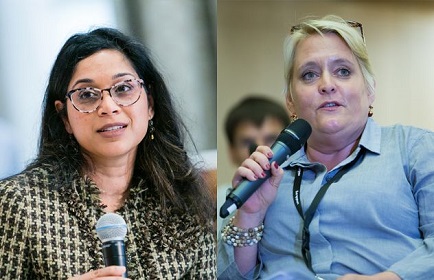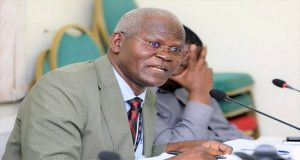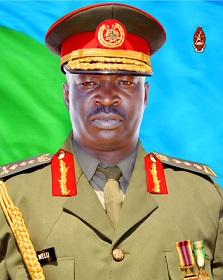
UNAIDS welcomes Angeli Achrekar and Christine Stegling as Deputy Executive Directors
United Nations Secretary-General Antonio Guterres has today announced the appointment of UNAIDS two Deputy Executive Directors.
Angeli Achrekar, who is currently Principal Deputy U.S. Global AIDS Coordinator, PEPFAR, will be UNAIDS Deputy Executive Director for the Programme Branch while Christine Stegling, who is currently Executive Director of Frontline AIDS, will be UNAIDS Deputy Executive Director for the Policy, Advocacy and Knowledge Branch.
Each of them will also be an Assistant Secretary-General of the United Nations.
UNAIDS Executive Director Winnie Byanyima said: “I am delighted to welcome to UNAIDS two exceptional leaders in the global HIV response. Angeli Achrekar and Christine Stegling are exemplars in building strong partnerships which connect communities, governments and the United Nations and achieve transformational impact. Their work has saved and changed lives and helped advance the dignity and rights of all. They are joining a UNAIDS that has been reshaped to be ready in this challenging global moment to ensure that no one is left behind. Through courageous leadership to end the inequalities which perpetuate the AIDS pandemic, the world can end AIDS. With the help of Angeli and Christine, UNAIDS will galvanise that leadership.”
Achrekar is “honored to join UNAIDS and to lead the Programme Branch.”
“I am inspired by how UNAIDS has united the world through its strategy in a shared commitment to end the inequalities which drive the AIDS pandemic. UNAIDS grounding in communities, data, programmatic insight, convening strength and bold advocacy have been central to the progress that has been made in the AIDS response, and are needed now more than ever. Together, in partnership with communities, NGOs, private sector, governments and multilateral organizations, we can and will end AIDS,” Achrekar said.
Stegling is equally “thrilled to join UNAIDS and to lead the new Policy, Advocacy and Knowledge Branch.”
According to Stegling, “UNAIDS has helped advance vital progress in laws, policies, and investments needed to unlock the barriers to prevention, testing and treatment.”
By ensuring that science is shared, Stegling says that “the human rights of all are protected, that inequalities are tackled, and that communities are supported to lead, we can enable the world to meet the international pledge to end AIDS.”






